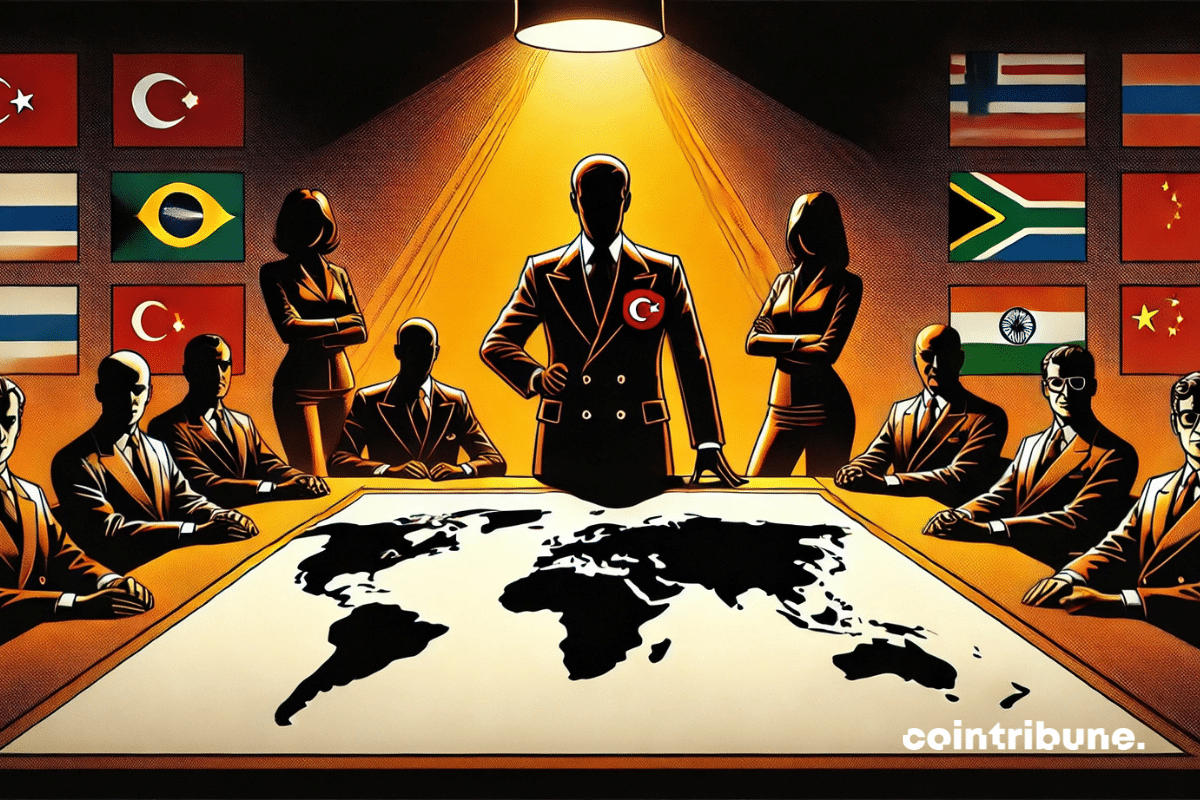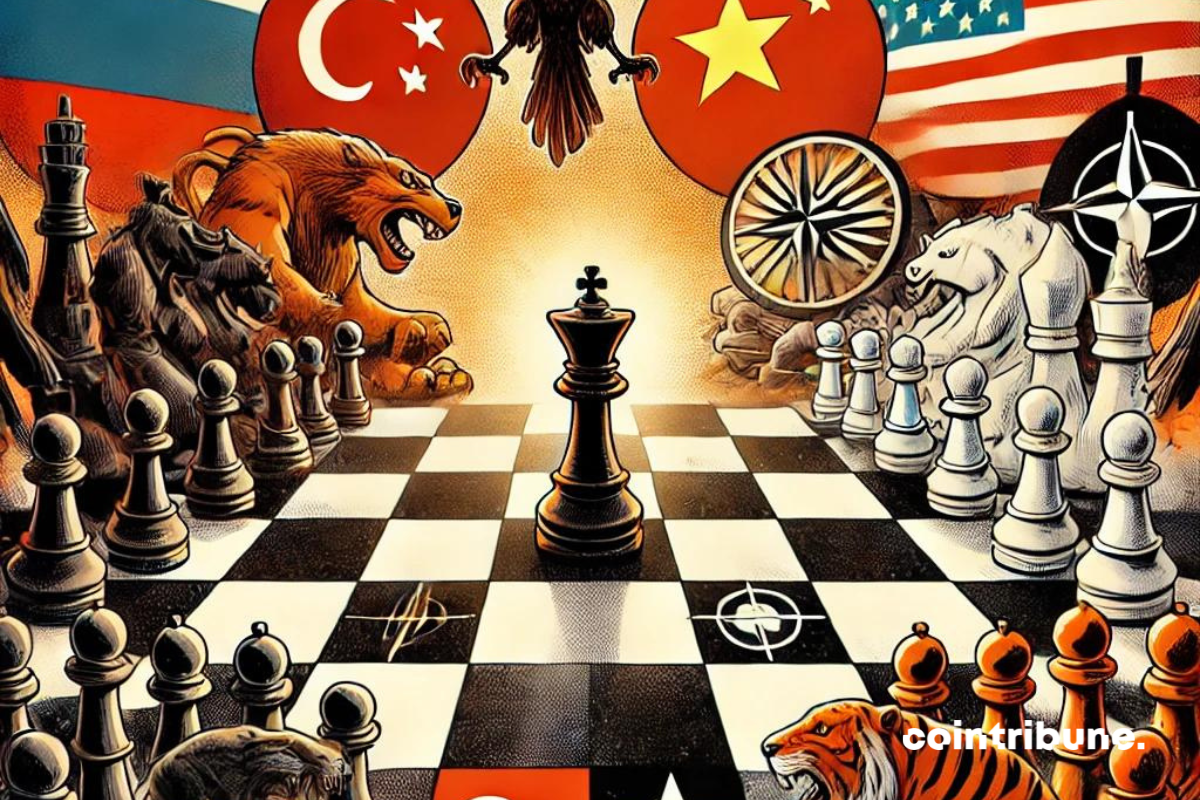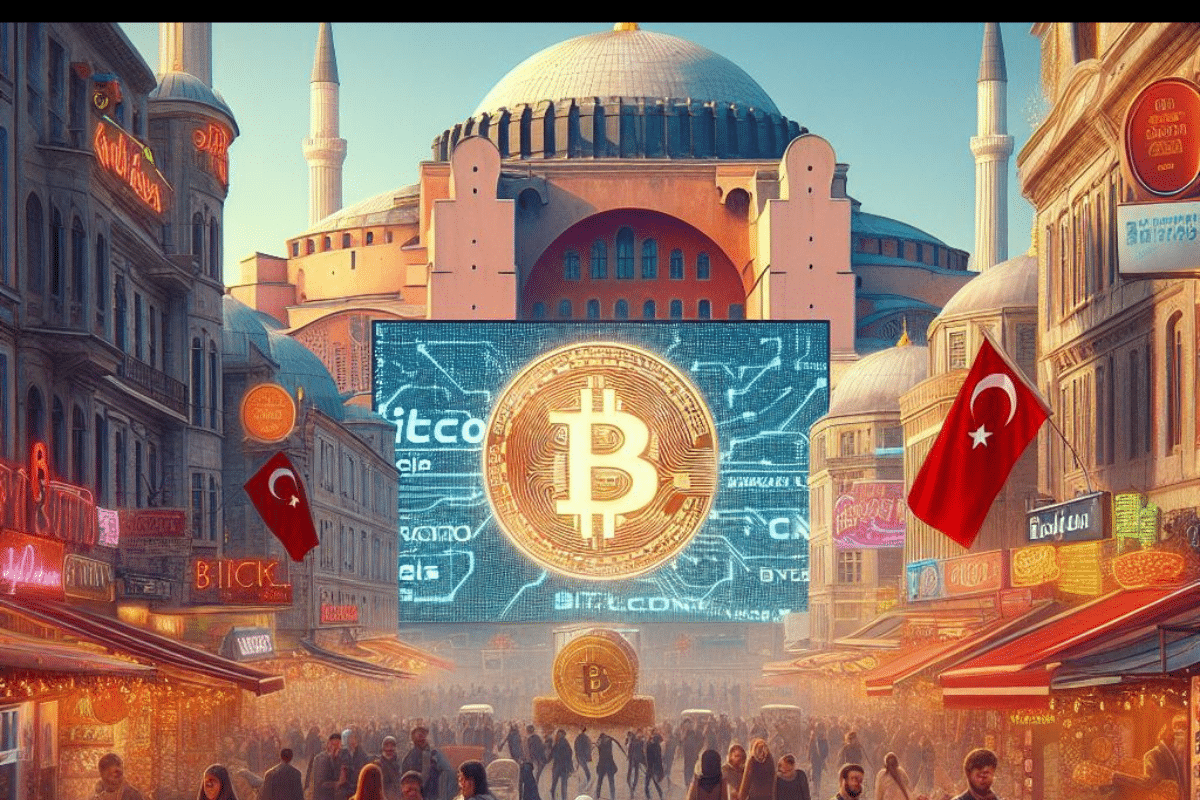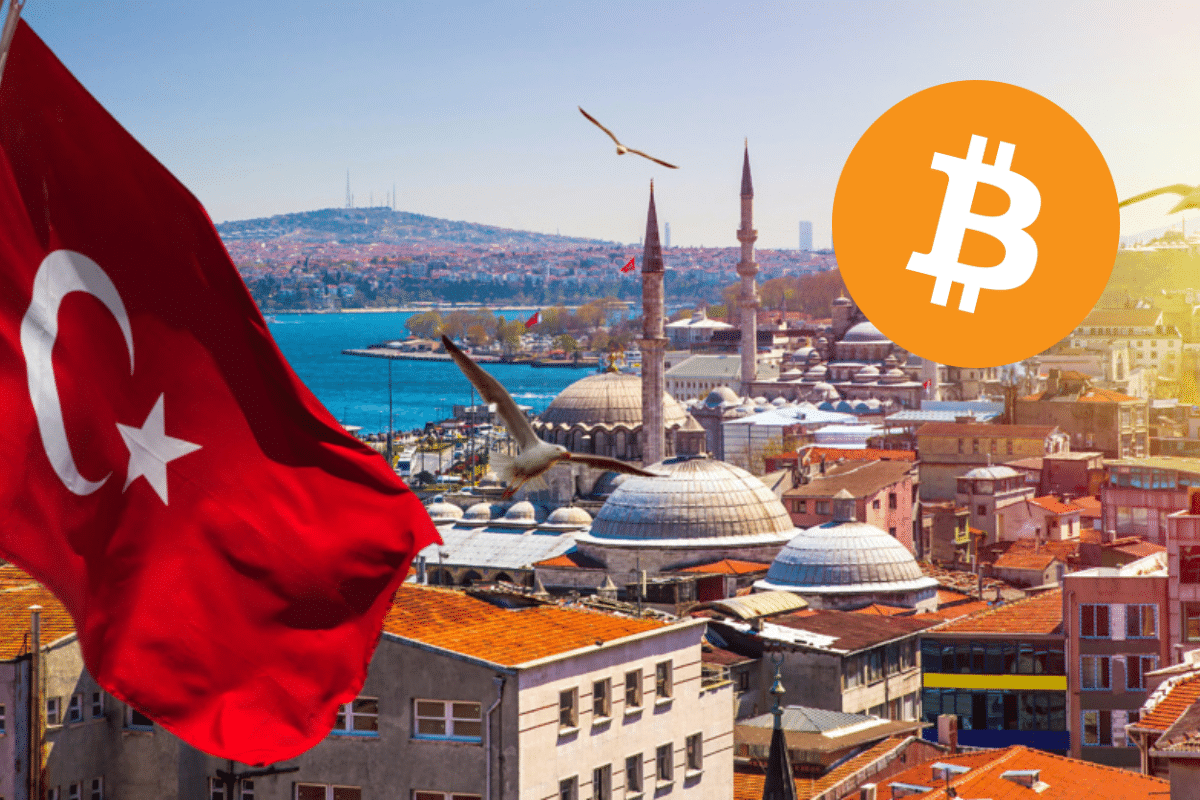The BRICS have been presenting themselves for several years as a credible alternative to hegemonic economic blocs such as the G7. In this context of increasing rivalries among powers, Russia has taken steps to expand this alliance. It then invited Saudi Arabia and Turkey to join its ranks. Moscow hoped to strengthen the bloc's influence on the international stage and to face the pressures from Western economies. However, these efforts encountered a rejection. This setback illustrates the divergent interests among these nations, as well as the challenges that the BRICS face in expanding their circle of influence in a world where geopolitical balances are becoming increasingly complex.
Turkey
As the world redefines its economic and political alliances, Turkey inserts itself at the heart of global dynamics. In search of increased influence on the international stage, Ankara is now moving closer to the BRICS, this bloc of emerging nations that is establishing itself as a strategic counterbalance to traditional Western powers. The recent Kazan summit was marked by the announcement of granting Turkey the status of "partner." This decision, filled with hopes for Ankara, opens up perspectives for cooperation but raises questions about the geopolitical and economic implications of this rapprochement.
As inflation runs rampant, USDT trots in as a savior! Tether, proud of its stablecoin, is preparing a tribute film.
The world is undergoing a geopolitical reshaping. While tensions between major powers shape international relations, economic alliances are evolving at an unprecedented speed. At the heart of this new global order, BRICS, the bloc of major emerging economies, is asserting itself as a key player capable of reshaping global balances. This group, once reserved for five members, has recently opened up to new candidates, adding giants like Iran and Saudi Arabia to its ranks. It is in this context that Turkey, under the leadership of President Recep Tayyip Erdoğan, seeks to join this influential alliance. A strategic decision that comes at a time when the prospects of EU membership are fading, prompting Ankara to diversify its economic and geopolitical partnerships. However, this candidacy is not universally accepted: BRICS, still in the consolidation phase after its last expansion, may slow down before making new decisions. This is despite the growing interest of about twenty nations to join the group.
The new Western sanctions against Russia continue to expand their influence. This time, it is the Moscow-Ankara axis that is bearing the consequences. With billions of dollars in trade settlements at stake, the repercussions on exchanges between Russia and Turkey could be profound and lasting. In a context where Turkish banks are now under increased scrutiny from the United States, the future of transactions between these two economic giants is uncertain.
Turkey, a key member of NATO, has just shaken the global geopolitical order with a surprising request to join the BRICS bloc, an economic and political alliance dominated by Russia and China. This initiative represents a decisive step in Ankara's diplomatic strategy, traditionally anchored in strong Western alliances. Turkish President Recep Tayyip Erdoğan appears determined to redefine his country's position on the international chessboard, seeking to establish partnerships beyond its historical alliances with the West. This development comes at a time when geopolitical tensions are high, challenging the balance of power between East and West.
Turkish President Recep Tayyip Erdogan has just appointed Fatma Ozkul, a professor specialized in crypto assets and blockchain, to the monetary policy committee of the Turkish central bank. This decision, announced by presidential decree on December 22, comes amidst high inflation in Turkey and the thriving Turkish crypto market.
Amid alarming inflation, a new trend is emerging in Turkey: more than half the population is now embracing cryptocurrencies as a financial haven. Here's an overview of this transformation.







